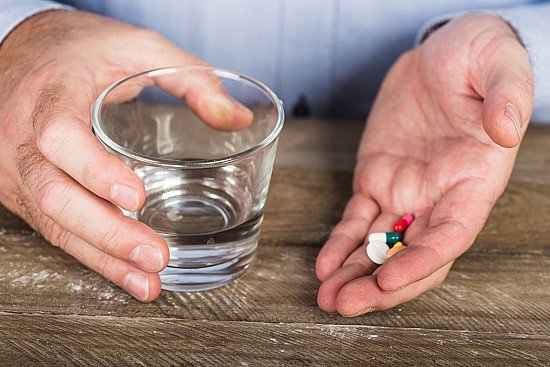Be careful before adopting natural remedies instead of medications.

Dealing with prostate disease is never easy. Established treatments are not always particularly effective, and you may want to try other, more natural methods of fighting prostate cancer, such as herbs or supplements. However, use with caution and always consult your doctor before taking any new type of medication.
An estimated one-third of American men with prostate cancer use at least one form of complementary health therapy, such as herbs or supplements. Some research suggests that herbs and supplements may help treat and support prostate cancer. However, the main concern is that some herbs and supplements may interact or interact with prescribed medications. For example, they may enhance or counteract the effects of some drugs.
One of the most common interactions involves herbs like St. John’s wort, which affect the liver by acting on cytochrome P450 enzymes that metabolize drugs.
Other herbs, such as saw palmetto, which some men take for benign prostatic hyperplasia (enlarged prostate), and melatonin supplements, which some men take in hopes of slowing the progression of prostate cancer, also May increase the risk of bleeding if taken with other drugs such as aspirin, ibuprofen, naproxen, anticoagulants, or antiplatelet drugs.
Another problem is that it’s not 100% clear whether herbs or supplements prevent prostate cancer or slow its growth. There are concerns that it may even increase risk.
One of the most famous studies on supplements and prostate cancer is the SELECT (Selenium and Vitamin E Cancer Prevention Trial) study, which investigated the use of vitamin E and selenium supplements. Preliminary research suggests that both may reduce the risk of prostate cancer in men. However, his SELECT results published in 2011 are jam, They found that men who took vitamin E supplements had a 17% increased risk of prostate cancer compared to men who took a placebo.
In 2014, researchers used data from the SELECT study to find out what high doses of vitamin E (400 international units per day) or selenium (200 micrograms per day) do for men at risk for prostate cancer. It was found that there was no effect of Supplements were even dangerous. For example, men who already had high selenium levels at the start of the study had a 91% increased risk of high-grade prostate cancer after taking selenium supplements. Also, in men with low selenium levels, vitamin E supplementation increased the overall risk of prostate cancer by 63% and the risk of high-grade cancer by 111%.
The bottom line is that herbs and supplements are not miracle workers and may be effective for some men with prostate disease, but you should consult your doctor to see if they can support your treatment, management, and prevention choices. That means there is.
– Written by Matthew Solan
Editor-in-chief, Harvard Men’s Health Watch
source:
http://jamanetwork.com/journals/jama/fullarticle/1104493
https://academic.oup.com/jnci/article-lookup/doi/10.1093/jnci/djt456

